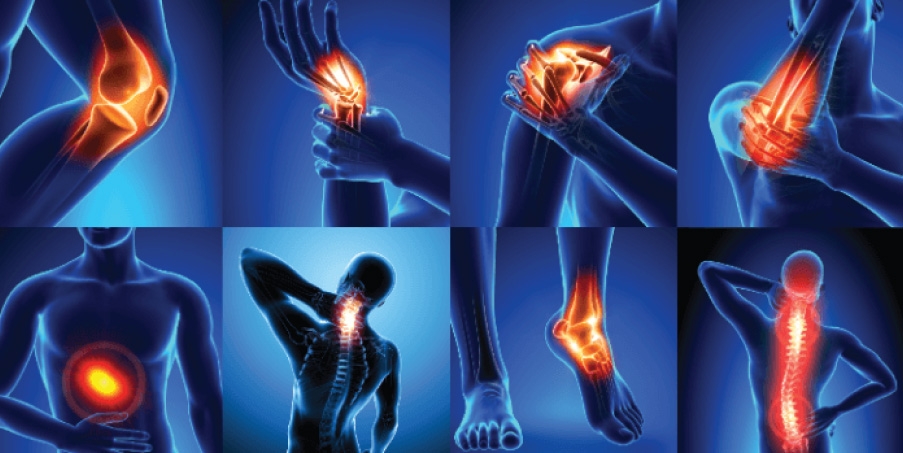
Introduction
Living with persistent pain can be a challenging and distressing experience, affecting your daily activities and overall well-being. For individuals residing in Kandivali, finding a skilled and compassionate pain doctor is paramount in managing chronic pain effectively. In this article, we will explore the role of a pain doctor, the treatments they offer, and how they can help individuals reclaim their lives from the grips of chronic pain.
Pain Doctor In Kandivali
Pain management doctors specialize in the diagnosis and treatment of chronic pain conditions. These specialists possess a profound expertise in identifying the origin of discomfort and formulating a suitable care strategy, which could encompass non-surgical methodologies like physical therapy, medication administration, and various interventional approaches. This piece will explore the responsibilities of pain management doctors and the array of alternatives for addressing chronic pain devoid of surgical intervention. Dr. Surabhi Bhagat serves as a Pain Specialist in the vibrant locality of Kandivali.
What Is Pain Management?
Pain care is a specialized medical field dedicated to diagnosing and treating persistent discomfort. Various factors, such as injuries, illnesses, and diseases, can lead to chronic pain. The profound impact it can have on an individual's quality of life is undeniable. Pain management specialists possess the expertise to uncover the root causes of pain and formulate tailored treatment strategies for its relief. Dr. Surabhi Bhagat stands as a Pain Specialist in Kandivali, offering her expertise in this regard.
Pain Doctor in Kandivali
A pain management doctor is a medical professional who specializes in the treatment of chronic pain. They possess an extensive comprehension of the diverse conditions that can give rise to discomfort, along with the most current array of treatment choices for its management. A pain management specialist undertakes a comprehensive assessment of the patient's state, encompassing a meticulous physical examination, a detailed scrutiny of medical history, and the utilization of diagnostic procedures like X-rays, MRI, or CT scans.
Drawing from this assessment, the physician will formulate an individualized treatment strategy that might encompass a blend of non-surgical measures. This encompasses a range of treatments, comprising pharmaceutical interventions like anti-inflammatory medications, muscle relaxants, and opioids, in addition to physical therapy, acupuncture, nerve blocks, and various other interventional therapies. The goal is to provide effective pain relief while minimizing the use of opioids and other potentially addictive medications.
Non-Surgical Pain Management Treatments
Numerous non-surgical choices are accessible for chronic pain conditions, aimed at mitigating discomfort and enhancing a patient's well-being without resorting to invasive surgical procedures. Some of the most common non-surgical pain management treatments include:
Drawing from this assessment, the physician will formulate an individualized treatment strategy that might encompass a blend of non-surgical measures. These may encompass medications like anti-inflammatory drugs, muscle relaxants, and opioids, along with physical therapy, acupuncture, nerve blocks, and other interventional approaches. The goal is to provide effective pain relief while minimizing the use of opioids and other potentially addictive medications.
Physical Therapy: Physical therapy stands as a non-surgical alternative aimed at enhancing a patient's mobility and strength levels. A physical therapist collaborates with the patient to create a specialized exercise regimen aimed at enhancing their flexibility and alleviating discomfort.
Nerve Blocks: The technique of nerve blocks entails injecting a local anesthetic or steroid medication into a targeted nerve or set of nerves, effectively obstructing the transmission of pain signals.This can provide temporary relief from chronic pain.
Radiofrequency Ablation: The process of radiofrequency ablation is a minimally invasive technique that employs heat to eliminate nerve tissue responsible for inducing pain. This can provide long-lasting pain relief without the need for surgery.
Spinal Cord Stimulation: This technique entails the placement of a compact device that emits controlled electrical impulses to the spinal cord, effectively intercepting pain signals. This can be an effective treatment option for patients with chronic back pain.
Benefits Of Non-Surgical Pain Management Treatments
Non-surgical pain management therapies provide numerous advantages to individuals grappling with chronic pain ailments. These benefits include:
With a focus on minimal invasiveness, non-surgical approaches require only small incisions or often none at all, eliminating the need for general anesthesia. This can reduce the risk of complications and speed up recovery time.
Reduced dependence on medication: Non-surgical treatments can reduce the need for opioid and other potentially addictive medications, reducing the risk of addiction and other adverse effects.
Understanding Chronic Pain
What is Chronic Pain?
Chronic pain refers to long-lasting discomfort that persists for more than 12 weeks, even after the initial injury or illness has healed. It can be caused by various conditions, such as arthritis, back problems, migraines, or neuropathy. Chronic pain not only affects physical health but can also lead to emotional distress and reduced quality of life.
The Role of a Pain Doctor
A pain doctor, also known as a pain specialist or pain management physician, is a medical professional specialized in diagnosing, treating, and managing chronic pain. These experts possess extensive knowledge of pain conditions and provide comprehensive care to address the unique needs of each patient. They work closely with individuals to design personalized treatment plans that focus on pain relief and improved functionality.
Treatments Offered by a Pain Doctor
Accurate Diagnosis: One of the primary responsibilities of a pain doctor is to accurately diagnose the source of the chronic pain. Through a thorough evaluation of medical history, physical examinations, and diagnostic tests, they can pinpoint the underlying cause of the pain.
Medication Management: Pain doctors may prescribe various medications to alleviate chronic pain and improve the patient's quality of life. These can include nonsteroidal anti-inflammatory drugs (NSAIDs), muscle relaxants, antidepressants, and in some cases, opioid medications. The goal is to find the most effective and safe medication for each individual.
Interventional Procedures: Pain doctors are skilled in performing interventional procedures to target specific sources of pain. These may include nerve blocks, joint injections, epidural injections, and radiofrequency ablation. Interventional procedures can provide significant pain relief and promote healing.
Physical Therapy: Physical therapy is an essential component of pain management. Pain doctors work in collaboration with physical therapists to develop exercise programs that improve flexibility, strength, and mobility while reducing pain.
Psychological Support: Chronic pain can have a profound impact on mental health. Pain doctors often work with psychologists or counselors to provide emotional support and coping strategies to patients dealing with chronic pain.
The Benefits of Consulting a Pain Doctor
Holistic Approach to Pain Management: Pain doctors take a holistic approach to pain management, considering the physical, emotional, and psychological aspects of the individual. This comprehensive approach ensures that all factors contributing to pain are addressed.
Personalized Treatment Plans: Every patient's experience with chronic pain is unique. Pain doctors create personalized treatment plans tailored to the individual's specific condition and needs, optimizing the chances of successful pain relief.
Improved Quality of Life: By effectively managing chronic pain, pain doctors can significantly improve a patient's quality of life, enabling them to engage in daily activities and enjoy life without the burden of constant pain.
Minimized Reliance on Medications: Pain doctors focus on finding the root cause of the pain and utilizing a combination of treatments. This approach can reduce the dependence on medications, especially opioids, which may have potential side effects and risks.
Conclusion
In a city where pain can easily become a constant companion, Dr. Surbhi Bhagat and her team at Pain Care Specialist offer a beacon of hope. Their patient-centered approach, blending modern medicine with holistic care, is transforming lives. Through her compassionate nature and unwavering commitment to excellence, Dr. Bhagat is redefining pain management.
FAQs
Q: What makes Dr. Surbhi Bhagat a leading figure in pain management?
A: Dr. Surbhi Bhagat's expertise in blending modern treatments with personalized care sets her apart.
Q: How does Pain Care Specialist approach pain management differently?
A: They embrace a holistic model, focusing on overall well-being alongside medical interventions.
Q: What can patients expect from their experience at Pain Care Specialist?
A: Patients can expect compassionate care, tailored treatments, and a collaborative approach to healing.
Q: What is Dr. Surbhi Bhagat's role in the medical community?
A: She is an honorable faculty member at national and international conferences, contributing to the field's advancement.
Q: How is Pain Care Specialist transforming the lives of patients?
A: By providing comprehensive pain management that goes beyond symptoms, they enhance patients' overall quality of life.
